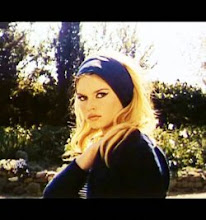
date watched: June 1, 2009
location: at home. private copy, part of The Adventures of Antoine Doinel box set
In French, "faire les quatre cents coups" can roughly be translated to "to raise hell."
It is the title that Truffaut decided on after considering the following titles: "Antoine Runs Away," "The Awkward Age," "The Vagabonds," and "Adventures Playing Hooky," among others.
I first watched this film around 3 years ago. I really think it deserves three more viewings, at least. To tell you the truth, I can't agree with film critics that say Truffaut is a better critic than he is a filmmaker, only because I haven't really read any of Truffaut's writings in the Cahiers. The only thing I read was "Une Certaine Tendance of Cinema Française/A Certainy Tendency of French Cinema," and even that was a while ago.
Possibly the best aspect of the film is its reverential nod for André Bazin in the dedication. I often wonder why such few films have dedications. Granted it may not be possible in a Hollywood spectacle, but even auteur films have a dearth of dedications, it seems.
Jean-Pierre Léaud really is a gem. Though this is rather selfish of me to say, I almost wish he froze forever in that famous frame at the end, instead of growing up as a twenty year-old and older; that way, he could remain the best child actor there was forever and ever. In any case, he was a cute child, too.

Antoine Doinel is more of a cinephile here, but he grows up to be more of a musicophile, judging by his later films. Truffaut remarked that it was basically the same idea: Doinel was obsessed by music, just as Truffaut was obsessed with the cinema.
My personal favorite of Doinel's acting was the moment he juts out his chin to say "Elle est morte" ("She is dead."). You can tell that he regretted it as soon as he said it, but it was something so impulsive that it literally contorted his visage.
Truffaut loved working with children, and it's interesting to see the casting tapes in the "special features" section. He was so calm with the auditioners, and the children were so daring and inventive. One kid sang and danced, out of his own volition; he was eventually cast as one of Doinel's classmates (the one that got ink all over his notebook). It differs radically from the way de Sica dealt with Bruno in The Bicycle Thief (1948): de Sica had to coerce tears out of the child actor, by scolding him harshly. I'd like to think that Truffaut was so good with the children because he was essentially still a child himself when he made this film--at least, in the cinematic sense. This was, after all, his first feature.

To end, an excerpt from Truffaut's letter to Jean-Pierre Léaud's father:
"Your son Jean-Pierre struck me as very intelligent and sufficiently precocious that the few weeks during which we will make him miss school should not constitute an insurmountable handicap for his standing at school."
And thank goodness Jean-Pierre Léaud's father gave him the permission, yes?

No comments:
Post a Comment